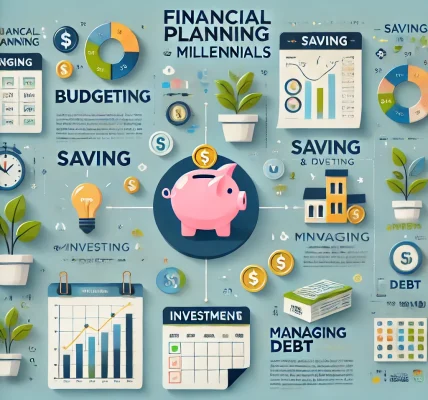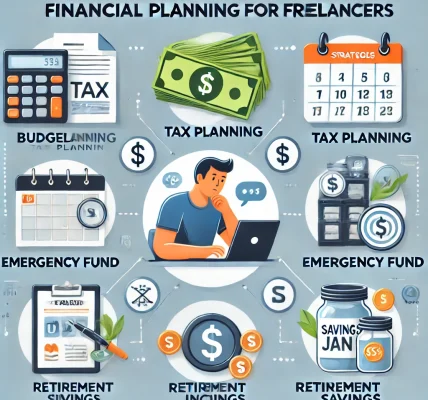A strong credit score is essential for securing loans with favorable terms and lower interest rates. Lenders use your credit score to assess your financial responsibility and determine the risk involved in lending you money. If you’re planning to apply for a loan, whether it’s a personal loan, home loan, or car loan, a good credit score will significantly improve your chances of approval.
In this article, we’ll explore the best strategies to build and maintain a strong credit score for better loan approvals.
Understanding Credit Score and Its Importance
A credit score is a three-digit number that reflects your creditworthiness. It is calculated based on your credit history, repayment behavior, credit utilization, and other factors. In most countries, credit scores range from 300 to 850, with higher scores indicating better creditworthiness.
Why Does a Good Credit Score Matter?
- Easier Loan Approvals: Lenders prefer borrowers with a high credit score.
- Lower Interest Rates: A strong score can help you secure loans at lower interest rates.
- Higher Credit Limits: Banks and financial institutions offer better credit limits to individuals with good scores.
- Better Credit Card Offers: A good credit score increases your chances of getting premium credit cards with exclusive benefits.
Key Factors Affecting Your Credit Score
Understanding what influences your credit score is crucial for improving and maintaining it. The key factors include:
- Payment History (35%) – Consistently paying bills on time is the most critical factor.
- Credit Utilization Ratio (30%) – Using too much of your available credit can lower your score.
- Length of Credit History (15%) – The longer your credit history, the better.
- Types of Credit (10%) – A mix of credit types (credit cards, personal loans, home loans) is beneficial.
- New Credit Inquiries (10%) – Too many applications for new credit can lower your score.
How to Build a Strong Credit Score?
1. Pay Your Bills on Time
Your payment history is the most significant factor in determining your credit score. Always pay your credit card bills, loan EMIs, and utility bills on time. Even a single missed payment can negatively impact your score.
Tips to Ensure Timely Payments:
- Set up automatic payments for bills and EMIs.
- Use calendar reminders for payment due dates.
- Avoid minimum payments; try to pay off the full balance.
2. Maintain a Low Credit Utilization Ratio
The credit utilization ratio refers to the percentage of your credit limit that you use. A high utilization ratio indicates over-dependence on credit and can lower your score.
Best Practices:
- Keep your credit utilization below 30% of your total credit limit.
- Request a higher credit limit to reduce your utilization ratio.
- Pay off balances multiple times a month to keep utilization low.
3. Avoid Frequent Credit Applications
Each time you apply for a new credit card or loan, the lender performs a hard inquiry, which can temporarily lower your credit score.
How to Avoid This Mistake?
- Apply for credit only when necessary.
- Compare different lenders before applying to avoid multiple inquiries.
- Consider pre-approved loan offers that don’t impact your score.
4. Keep Your Old Credit Accounts Open
Closing old credit card accounts can shorten your credit history and negatively affect your score.
What You Should Do:
- Keep older accounts open to maintain a long credit history.
- Use old credit cards occasionally to keep them active.
- If you must close an account, close the newest one instead of the oldest.
5. Monitor Your Credit Report Regularly
Errors in your credit report can harm your score without you realizing it. Regularly reviewing your credit report helps you identify mistakes and correct them.
How to Check Your Credit Report?
- Request a free credit report from credit bureaus annually.
- Look for errors like incorrect account details or fraudulent transactions.
- Dispute inaccuracies immediately with the credit bureau.
6. Diversify Your Credit Portfolio
Having different types of credit, such as credit cards, personal loans, and home loans, can positively impact your score.
Best Practices:
- If you only have credit cards, consider a small personal loan to add variety.
- Ensure you can manage multiple credit types before taking on new credit.
- Avoid excessive debt just for the sake of diversifying your credit.
7. Settle Any Outstanding Debts
Unpaid loans and overdue accounts significantly damage your credit score. If you have any outstanding debts, prioritize paying them off.
Strategies to Pay Off Debt:
- Use the debt snowball method (paying off smaller debts first) or debt avalanche method (paying off high-interest debts first).
- Consider debt consolidation if managing multiple loans is difficult.
- Contact lenders to negotiate payment plans if necessary.
Common Credit Score Myths Debunked
Myth 1: Checking Your Credit Score Lowers It
Fact: Checking your own credit score is called a soft inquiry and does not affect your score.
Myth 2: Closing a Credit Card Improves Your Score
Fact: Closing an account can actually hurt your score by shortening your credit history.
Myth 3: A High Salary Guarantees a Good Credit Score
Fact: Your income level does not directly affect your credit score; responsible credit usage does.
Myth 4: You Need a Credit Card to Build Credit
Fact: Other forms of credit, such as loans, can also help build your credit score.
Final Thoughts
Building and maintaining a strong credit score requires discipline and smart financial habits. By making timely payments, keeping credit utilization low, monitoring your credit report, and diversifying your credit portfolio, you can improve your creditworthiness and secure better loan approvals with favorable terms.
A high credit score not only helps with loans but also impacts other financial aspects, such as getting approved for rental agreements and lower insurance premiums. Start implementing these strategies today to ensure a financially secure future.
Disclaimer: This article is for informational purposes only. Please consult a financial expert for personalized advice on credit management.



